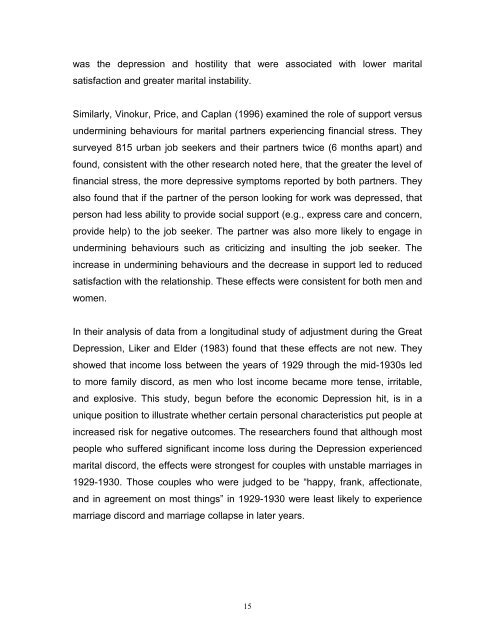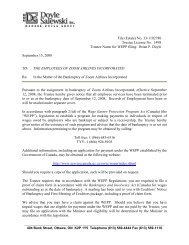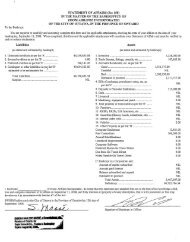Download the Carleton University Report (PDF). - Doyle Salewski Inc
Download the Carleton University Report (PDF). - Doyle Salewski Inc
Download the Carleton University Report (PDF). - Doyle Salewski Inc
You also want an ePaper? Increase the reach of your titles
YUMPU automatically turns print PDFs into web optimized ePapers that Google loves.
was <strong>the</strong> depression and hostility that were associated with lower marital<br />
satisfaction and greater marital instability.<br />
Similarly, Vinokur, Price, and Caplan (1996) examined <strong>the</strong> role of support versus<br />
undermining behaviours for marital partners experiencing financial stress. They<br />
surveyed 815 urban job seekers and <strong>the</strong>ir partners twice (6 months apart) and<br />
found, consistent with <strong>the</strong> o<strong>the</strong>r research noted here, that <strong>the</strong> greater <strong>the</strong> level of<br />
financial stress, <strong>the</strong> more depressive symptoms reported by both partners. They<br />
also found that if <strong>the</strong> partner of <strong>the</strong> person looking for work was depressed, that<br />
person had less ability to provide social support (e.g., express care and concern,<br />
provide help) to <strong>the</strong> job seeker. The partner was also more likely to engage in<br />
undermining behaviours such as criticizing and insulting <strong>the</strong> job seeker. The<br />
increase in undermining behaviours and <strong>the</strong> decrease in support led to reduced<br />
satisfaction with <strong>the</strong> relationship. These effects were consistent for both men and<br />
women.<br />
In <strong>the</strong>ir analysis of data from a longitudinal study of adjustment during <strong>the</strong> Great<br />
Depression, Liker and Elder (1983) found that <strong>the</strong>se effects are not new. They<br />
showed that income loss between <strong>the</strong> years of 1929 through <strong>the</strong> mid-1930s led<br />
to more family discord, as men who lost income became more tense, irritable,<br />
and explosive. This study, begun before <strong>the</strong> economic Depression hit, is in a<br />
unique position to illustrate whe<strong>the</strong>r certain personal characteristics put people at<br />
increased risk for negative outcomes. The researchers found that although most<br />
people who suffered significant income loss during <strong>the</strong> Depression experienced<br />
marital discord, <strong>the</strong> effects were strongest for couples with unstable marriages in<br />
1929-1930. Those couples who were judged to be “happy, frank, affectionate,<br />
and in agreement on most things” in 1929-1930 were least likely to experience<br />
marriage discord and marriage collapse in later years.<br />
15





